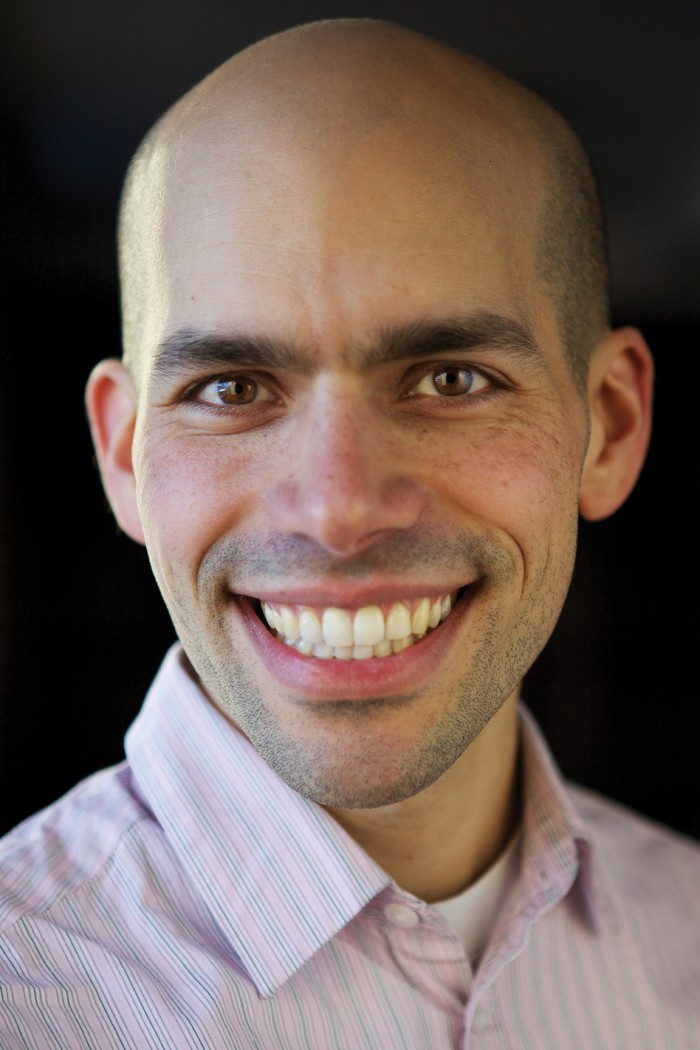
For Ari Daniel, there is no limit to where he can lead an audience with powerful storytelling. His work as a journalist and science writer has transported people to the edge of a glacier and launched them into the depths of outer space.
Daniel’s journey into scientific communication began during his PhD studies in the MIT/Woods Hole Oceanographic Institution Joint Program, where his dissertation focused on how Norwegian killer whales vocalize during hunting. Near the end of his time as a grad student, he decided to branch out from research.
“I was looking for a way to do something that was still steeped in science,” Daniel recalls, “but somehow connected with a more creative outlet, where I would be interacting with people.”
What Daniel connected with was Atlantic Public Media in Woods Hole. Armed with a loaner microphone and newly acquired audio editing skills, he began working on some small radio projects, and soon he was hooked. After completing his PhD, Daniel transitioned into scientific communication full time.
“I think that getting a PhD in a science field has given me a lifelong sense of what it means to do research, be a scientist,” he explains, “And that helps immeasurably when I work on my stories.”
Currently, Daniel is a digital producer for Nova on PBS, and he is also involved in other radio and multimedia projects. He built the Nova Black Holes app, an iPad game similar to Angry Birds, where “instead of birds, you fling a star to hit different targets in outer space.” He also produced “Under the Stars,” a planetarium series at the Boston Museum of Science that weaves together live music, storytelling, and visuals projected onto the planetarium dome.
In 2015, Daniel returned to his research roots by venturing into the field with glaciologists and engineers to study climate change in Iceland and Greenland. He published radio dispatches for Public Radio International, videos for Nova, and Instagram essays focused on how the landscape is changing in both countries. “That was just a spectacular, incredible opportunity to go to the melting edge of our changing planet,” he says.
The trip captures something fundamental about Daniel’s work. “I think one of my strongest motivations is the sense of giving voice to those without a voice,” he says, “and turning the light onto places that might otherwise be dark.”
Daniel and his wife, Ghinwa Choueiter, SM ’04, PhD ’09, live in Somerville, Massachusetts, with their eight-month-old daughter.
Keep Reading
Most Popular
Large language models can do jaw-dropping things. But nobody knows exactly why.
And that's a problem. Figuring it out is one of the biggest scientific puzzles of our time and a crucial step towards controlling more powerful future models.
How scientists traced a mysterious covid case back to six toilets
When wastewater surveillance turns into a hunt for a single infected individual, the ethics get tricky.
The problem with plug-in hybrids? Their drivers.
Plug-in hybrids are often sold as a transition to EVs, but new data from Europe shows we’re still underestimating the emissions they produce.
Google DeepMind’s new generative model makes Super Mario–like games from scratch
Genie learns how to control games by watching hours and hours of video. It could help train next-gen robots too.
Stay connected
Get the latest updates from
MIT Technology Review
Discover special offers, top stories, upcoming events, and more.